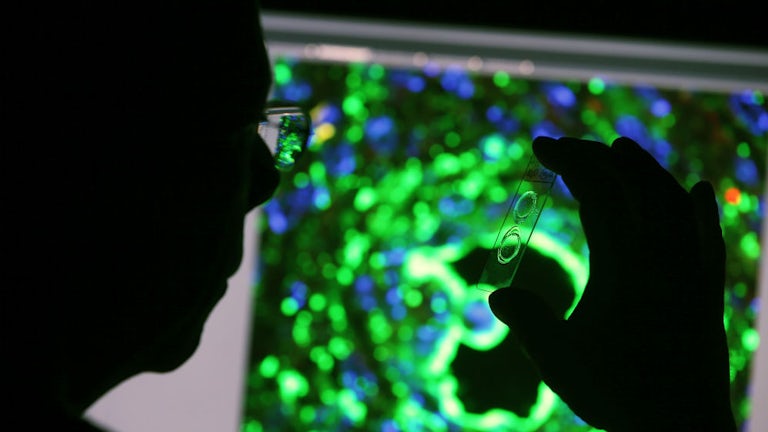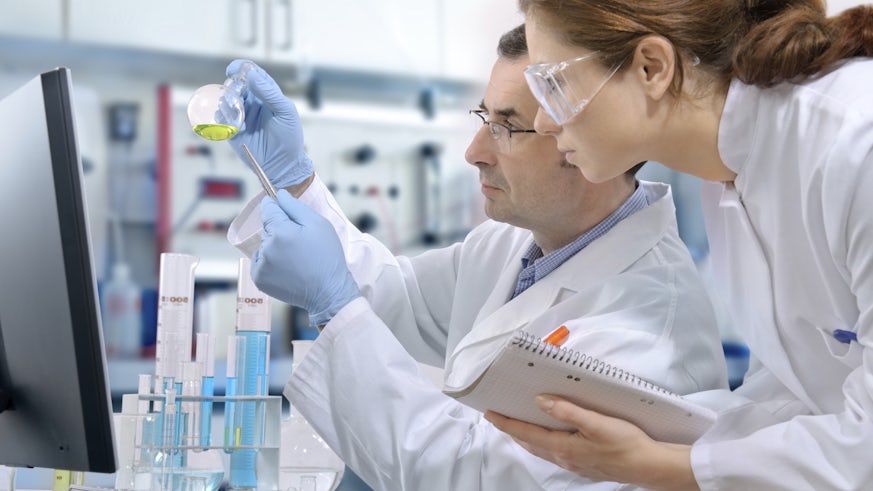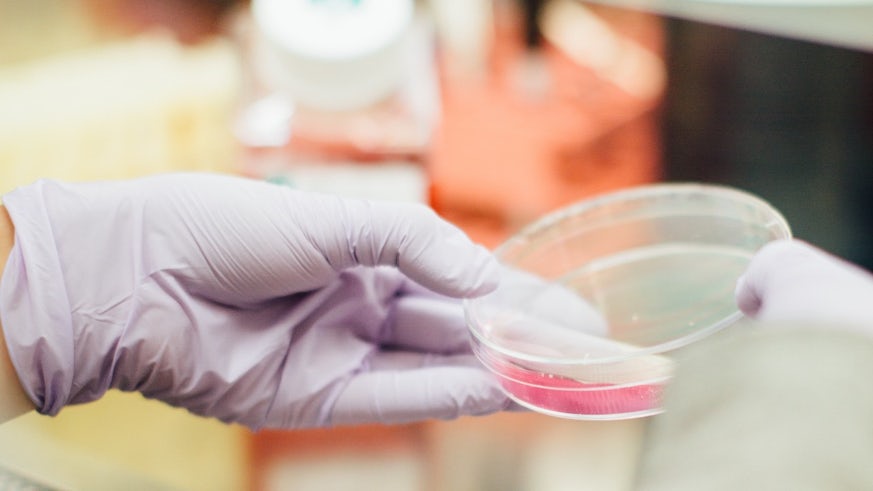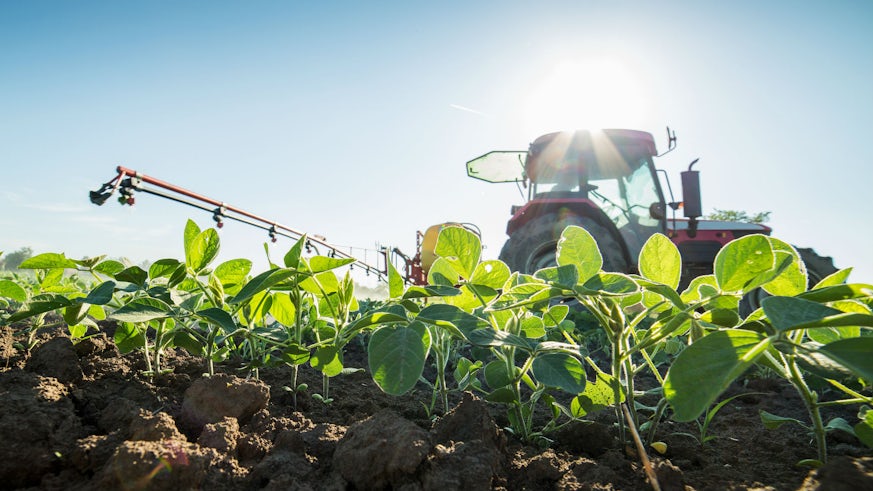
Pioneering new ways of tackling bacterial contamination
Our research has helped to reduce contamination risk in industry on a global scale.
“I study environmental bacteria that get into places they shouldn’t.”
That’s the way Professor Eshwar Mahenthiralingam sums up his research in its simplest form.
Another way of thinking about it might be like detective work – but hunting for a culprit you can’t see with the naked eye.
The real-world impact of Professor Mahenthiralingam’s work dwarfs the microscopic bacteria he studies. For some, naturally occurring bacteria in the wrong place can be a matter of life or death.
Take the main focus of much of his research: the bacteria Burkholderia, which in the nineties was spreading between people with cystic fibrosis (CF) at some pace.
People with CF already have severely depleted lungs so infection with opportunistic bacterial pathogens could quickly be fatal.
“We needed a way of identifying these bacteria at a molecular level. For this we needed DNA sequencing tools. We were the first to develop a single-gene approach to accurately identify these bacteria. We then evolved this into a multi-gene identification tool, enabling us to track the most virulent strains on a global scale,” he explains.
“Our research led to national and international infection control guidelines, which has essentially meant we’ve been able to eliminate the epidemic spread of Burkholderia in CF populations across the world. It’s been really wonderful to see the difference our research has made to people with this condition.”
Tackling antimicrobial resistance
“Jekyll and Hyde” is how Professor Mahenthiralingam describes these tiny but tough bacteria that live in the natural environment. To plants, they are frequently beneficial, for example by colonising and protecting them from attack by fungus and other pathogens.
But they have developed high antimicrobial resistance, which means they remain a potential threat to vulnerable people. Another example of this resilience is their ability to survive in man-made products where they can cause contamination.
To help tackle this problem, Professor Mahenthiralingam applied his work with CF patients to detecting bacteria in products such as cosmetics and toiletries, which are made in a non-sterile environment. Contamination can pose a serious health risk to consumers and lead to costly product recalls.
His research has helped global manufacturer, Unilever, reduce incidents of contamination and develop improved preservative formulations to prevent product spoilage by microorganisms.
“We took the genetic tools we used to solve the original CF problem and applied these to tackle an industrial problem. We can tell Unilever what types of bacteria to track and help them keep these bacteria out to reduce the risk of contamination,” says Professor Mahenthiralingam.
In future, he hopes the cosmetics industry will adopt tighter regulations when it comes to product contamination – and identifying the bacteria that cause it – similar to restrictions placed on the food industry.
Solving problems with microbiology
Professor Mahenthiralingam first knew he wanted to work in microbial genomics while studying applied biology at the University of Wales Institute of Science and Technology, which later merged with Cardiff University College to become Cardiff University.
“In my second year we ran our first extraction of bacterial DNA on an agarose gel – a technique commonly used to separate DNA fragments. To visualise this, you place the stained gel under ultraviolet light, and as soon I saw the DNA fragments glowing in this light, I knew I wanted to be a molecular microbiologist,” he explains.
The 1980s was an exciting time for genetics, and the ability to manipulate DNA sequences in bacteria. This coincided with Professor Mahenthiralingam completing his university degree.
“Throughout my career, I’ve continued to be fascinated by – and apply – microbiology methods to multiple problems. Most recently this has expanded to using genomic techniques to understand the full DNA sequence of bacteria,” he says.
Professor Mahenthiralingam has his own lab and was Director of Research for our School of Biosciences, before recently becoming Head of School, where he continues to research the microbiological problems – but also the benefits – of these bacteria.

Looking to the future
One area of concern is that the move towards toiletries based on more natural products, using milder preservatives and fewer man-made chemicals, could be causing an upsurge in problematic bacterial contaminants. This, coupled with a shift by manufacturers to using reusable packaging and home re-filling, could create problematic situations which need monitoring.
His team’s latest ambitious project, a fellowship with researcher Dr Laura Ruston and Unilever, will look at the changing use of these preservatives in a group of emerging industrial contaminants known as enteric bacteria.
These bacteria pose a huge global health risk as they become increasingly resistant to antibiotics. The right preservatives are needed to prevent their growth in home, beauty and personal care products.
“We don’t yet know enough about these issues – but what we do know is that the whole landscape is changing, and we need to respond to this,” says Professor Mahenthiralingam.
“It’s a pretty niche but important area of microbiology that has global reach, and we have a very unique type of expertise to be able to help.”
Beneficial bacteria
Professor Mahenthiralingam and his team are also working on a variety of new projects around beneficial bacteria. Such as, the use of genetically modified bacteria to reduce reliance on chemical pesticides to improve and sustain food production.
“Using genetics to potentially make safe Burkholderia biopesticides, or transfer their beneficial genes into other non-pathogenic environmental bacteria, are two key long-term goals,” he says.
“There’s always something else to look at – it certainly keeps my curiosity going.”

Research at the School of Biosciences
Our research ranges across the biological and biomedical sciences, and is led by internationally renowned researchers running dynamic research programmes with access to state-of-the-art technology facilities.
Meet the team
Key contacts
Related news stories
Publications
- Cunningham-Oakes, E. et al. 2019. Understanding the challenges of non-food industrial product contamination. FEMS Microbiology Letters 366 (23) fnaa010. (10.1093/femsle/fnaa010)
- Weiser, R. et al. 2019. Not all Pseudomonas aeruginosa are equal: strains from industrial sources possess uniquely large multireplicon genomes. Microbial Genomics 276. (10.1099/mgen.0.000276)
- Weiser, R. et al. 2014. Evaluation of five selective media for the detection of Pseudomonas aeruginosa using a strain panel from clinical, environmental and industrial sources. Journal of Microbiological Methods 99 , pp.8-14. (10.1016/j.mimet.2014.01.010)
- Rushton, L. et al. 2013. Key role for efflux in the preservative susceptibility and adaptive resistance of Burkholderia cepacia complex bacteria. Antimicrobial Agents and Chemotherapy 57 (7), pp.2972-2980. (10.1128/AAC.00140-13)










